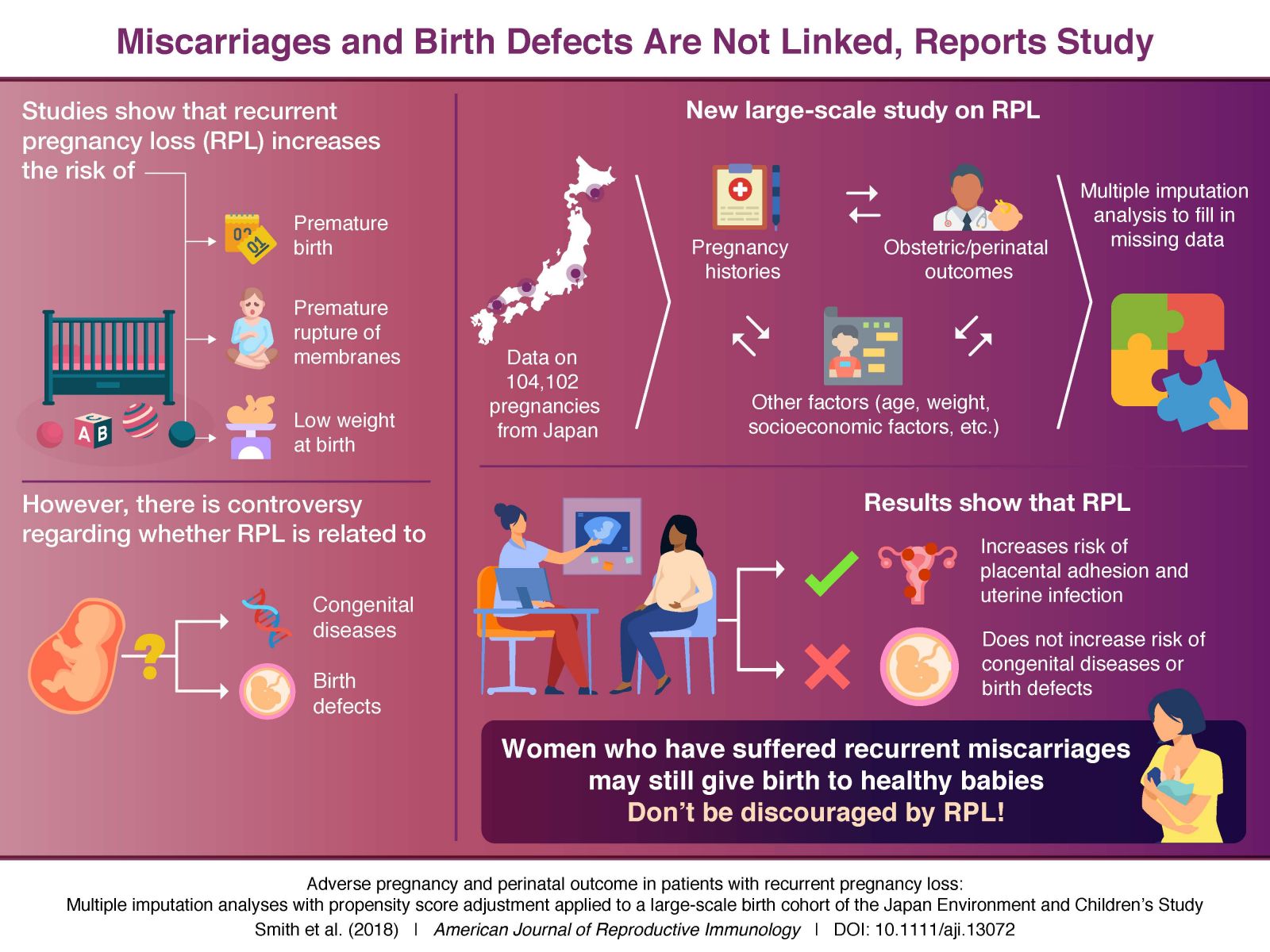

Recurrent pregnancy loss (RPL), which is defined as two or more losses at any point during pregnancy, is a complex problem with multiple possible causes and side effects. Although researchers have established a connection between RPL and higher risk of premature birth or premature membrane rupture, whether RPL increases the risk of congenital diseases or birth defects has not been explored.
In this work, the researchers address this issue by analyzing data from the nationwide, large-scale Japan Environment and Children’s Study, which included data from 104,102 registered pregnancies. The results of statistical analyses reveal a new association between RPL and several problems, including placental adhesion, uterine infection, and C-section.
In addition, and perhaps most importantly, the researchers found no link between RPL and birth defects or congenital/genetic anomalies. In other words, women who have experienced RPL can still give birth to healthy babies. So, please don’t be discouraged by RPL!
What is it about?
The researchers examined and compared adverse pregnancy and perinatal outcomes between women with and without RPL in a large-scale prospective study.
Why is it important?
The encouraging results could help alleviate the anxiety surrounding pregnancy and childbirth in women with RPL, who may still be able to give birth to healthy babies.
What this study adds
Using various statistical analyses techniques, they found new links between RPL and increased risk of placental adhesion, uterine infection, stillbirth, mild and severe hypertensive disorders of pregnancy, and C-section.
In addition, they found NO association between RPL and birth defects or chromosomal abnormalities in children. In other words, women with a history of RPL are not at higher risk of giving birth to children with congenital diseases or birth defects.
Evidence before this study
RPL has been associated with increased risk of preterm birth, premature rupture of membranes, and low weight at birth, but there is conflicting evidence for links between RPL and birth defects and congenital diseases.
* The findings and conclusions of this paper and the lay-summary article are solely the responsibility of the authors and Science writer of this article, and do not represent the official views of the Japanese government.
Title of the paper: Adverse pregnancy and perinatal outcome in patients with recurrent pregnancy loss: Multiple imputation analyses with propensity score adjustment applied to a large-scale birth cohort of the Japan Environment and Children’s Study
Authors: Mayumi Sugiura-Ogasawara, Takeshi Ebara, Yasuyuki Yamada, Naoto Shoji, Taro Matsuki, Hirohisa Kano, Takahiro Kurihara, Toyonori Omori, Motohiro Tomizawa, Maiko Miyata, Michihiro Kamijima, Shinji Saitoh, the Japan Environment, Children’s Study (JECS) Group
Journal: Am J Reprod Immunol. 2019 Jan;81(1):e13072..

This contents and the article contribute the following Sustainable Development Goals:


